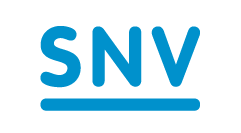Sorry, your search did not match any of our live jobs
We suggest that you:

JOB SUMMARY |
|
| Company | SNV Ghana |
| Industry | NGO/IGO/INGO |
| Category | Supply Chain ... |
| Location | Nandom and La... |
| Job Status | Contractor/Co... |
| Salary | GH¢ |
| Education | Qualified |
| Experience | N/A |
| Job Expires | Feb 13, 2023 |
| Contact | ... |
| |
|
|
Company Profile SNV is a not-for-profit international development organisation that applies practical know-how to make a lasting difference in the lives of people living in poverty. We use our extensive and long-term in-country presence to apply and adapt our top-notch expertise in agriculture, energy, and WASH to local contexts. SNV has an annual turnover of €130 million, over 1,250 staff in more than 25 countries in Africa, Asia, and Latin America. We are proud to be a not-for-profit organisation that uses project financing to implement our mission. This requires us to work efficiently and to invest in operational excellence. SNV has worked in Ghana since the 1992 and currently has offices in Accra, Tamale, and Nandom. For more information on SNV, visit our website: www.snv.org Job Description Terms of Reference
Contracting of Civil Society Organisation(s) to partner with SNV Ghana on Market Strengthening and Professionalisation of WASH service delivery for the Healthy Future for All project in Ghana. Background
In 2020, Ghana's access to basic water supply stood at 86% overall (only 42% thereof safely managed). In rural areas, the picture is different; only 72% have access to basic water supply and thereof only 16% to safely managed services. As per the international SDG indicators, "safely managed drinking water" is defined as using an improved drinking water source located on-premises, available when needed, and free of contamination. In 2020, access to basic sanitation in Ghana was 24% (thereof, 13% safely managed). Unsurprisingly, in rural areas, the overall percentage is lower (17%) but with a higher rate of safely managed facilities (15%). The explanation lies in the criteria for "safely managed" which include off-site treatment and on-site treatment – the latter often practiced in rural areas where space is not as limited as in urban areas. A similar picture can be painted for progress in hygiene and access to water and sanitation services in health care facilities and schools. Despite the progress Ghana has made on water supply, sanitation, and hygiene overall, the urban-rural disparity persists. The Upper West region of Ghana, a region with a few small towns and primarily rural characteristics, has the highest poverty rates (60-72%) and the highest depth of poverty. This stands in stark contrast to the Southern regions like Greater Accra and Ashanti, and Western regions where poverty rates are much lower. These regional differences are also reflected in the health and wellbeing of children. Healthy Future for All (HF4A) is a Water, Sanitation, Hygiene and Nutrition intervention in Ghana's Nandom and Lambussie districts that will lead to substantial development in the targeted communities. Over three years, HF4A will improve the quality of life for all and specifically increase the number of children under 15 years growing up in a hygienic environment at home and in school. At SNV, we start our implementation with a baseline, Gender Equity and Social Inclusion (GESI) study and formative research to plan our interventions based on evidence. Social Behavioural Change (SBC) interventions for key target audiences aim at empowering beneficiaries to make informed decisions that lead to positive change and resilience. In parallel, and to harness private sector potential, concrete measures will strengthen supply chains and professionalize service provision. HF4A will look into increasing the availability of finance options for households to turn their decisions into actions. At the same time, carefully and jointly with the local government, selected infrastructure interventions will boost the functionality of water and sanitation facilities in health care facilities, schools, and communities. WASH governance is a central component to ensure sustainability and will be strengthened through improved long term and joint multi-stakeholder planning while including all social groups in the respective processes. ObjectiveUnder this 3-year project, SNV seeks a partner to strengthen the capacity of local WASH market stakeholders including service providers, hardware vendors, infrastructure management teams (WSMTs) and other supply/value chain actors. This partnership will see to enhanced delivery of WASH through skills, professionalisation and regulation of various actors. Areas of Intervention Main areas of intervention are:
Outputs and outcomes
These outputs will yield a stronger WASH market to benefit the underserved. Coordination Scope and coverage of work Selection process and timeframe
Required Skills or Experience Guidelines and selection criteria
How To Apply Sorry, job has expired.
Note
Please note, employers receive numerous applications per posting and will only shortlist the most qualified candidates. Also Jobsinghana.com is not involved in any decision made by an employer/recruiter and therefore does not guarantee that applications sent will result in a candidate being shortlisted/selected for that position. | ||||||||||||||